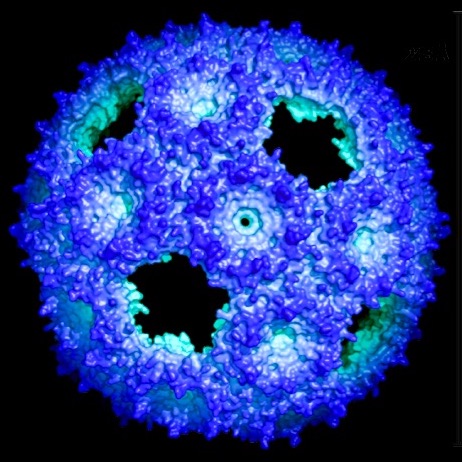Bacterial microcompartments (BMCs) are nanoscale factories that serve a variety of functions, but share one common feature: an exterior shell made of modular protein tiles. Scientists have been keen to learn how to manipulate BMCs in the lab to design factories to do things they don’t do in nature.

Credit: MSU-DOE Plant Research Laboratory
Researchers at Berkeley Lab and Michigan State University (MSU), led by Cheryl Kerfeld, have created a genetically engineered shell based on natural structures and the principles of protein evolution. The new shell is smaller and simpler, made of only a single designed protein (natural BMCs are made of up to three), making it easier to work with in the lab.
The study was published in ACS Synthetic Biology. In addition to Kerfeld, an affiliate faculty scientist in Environmental Genomics and Systems Biology (EGSB) and professor in the MSU-DOE Plant Research Laboratory, the paper’s authors were: Markus Sutter, a senior research associate in EGSB; Bryan Ferlez, a postdoc in Kerfeld’s MSU lab; and Sean McGuire, a former undergraduate student researcher and technician in Kerfeld’s MSU lab.
Read more from the MSU-DOE Plant Research Lab.




